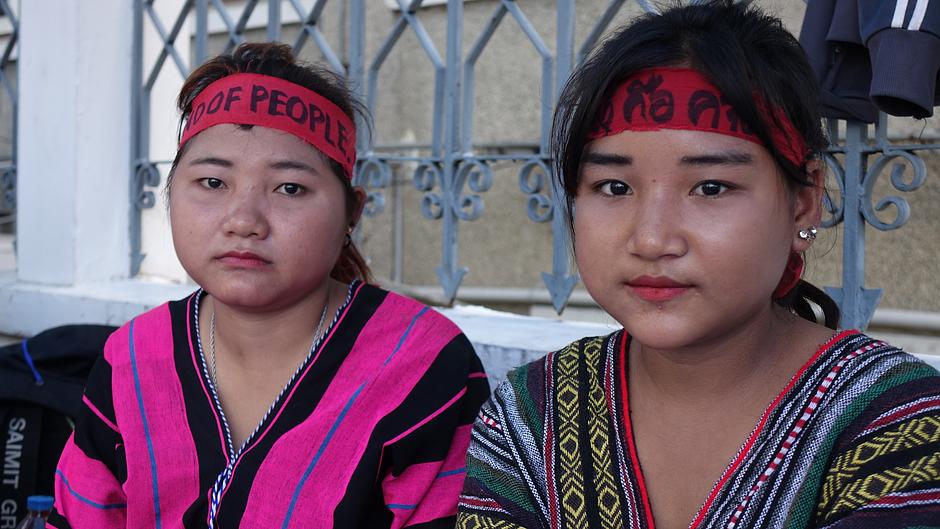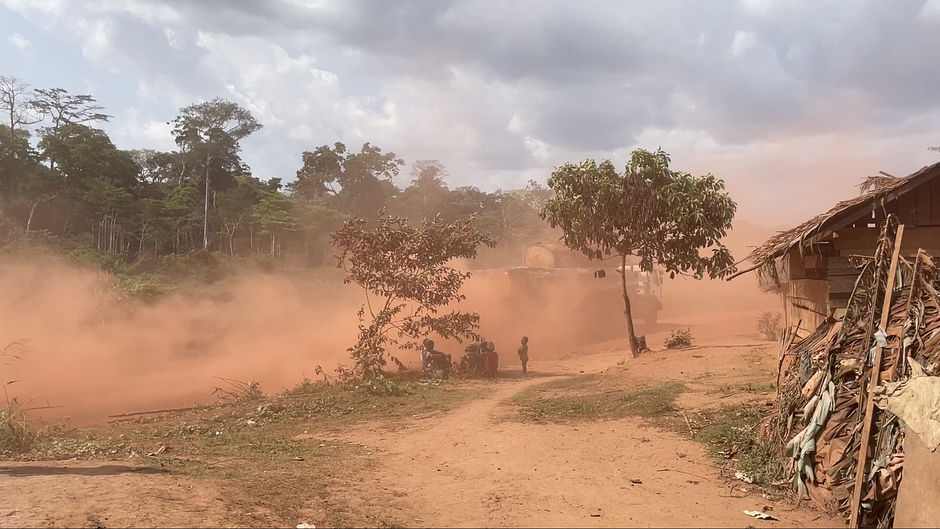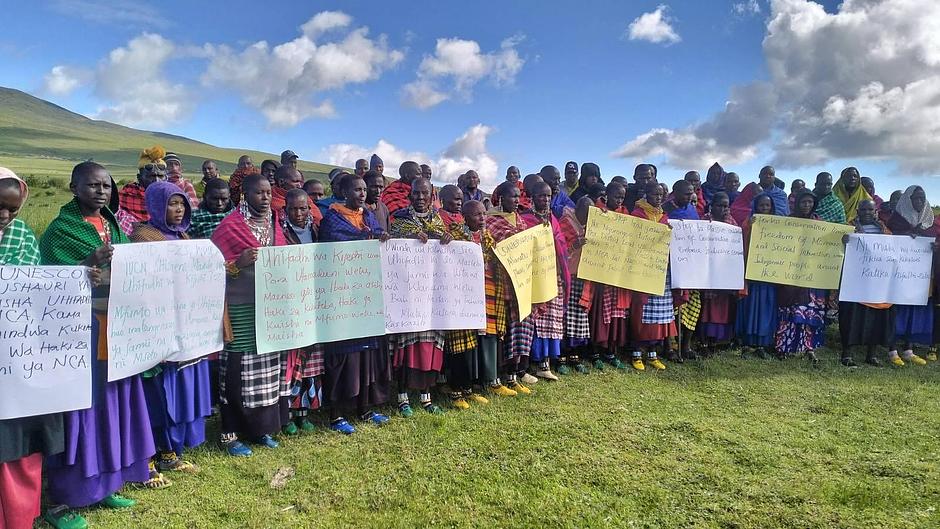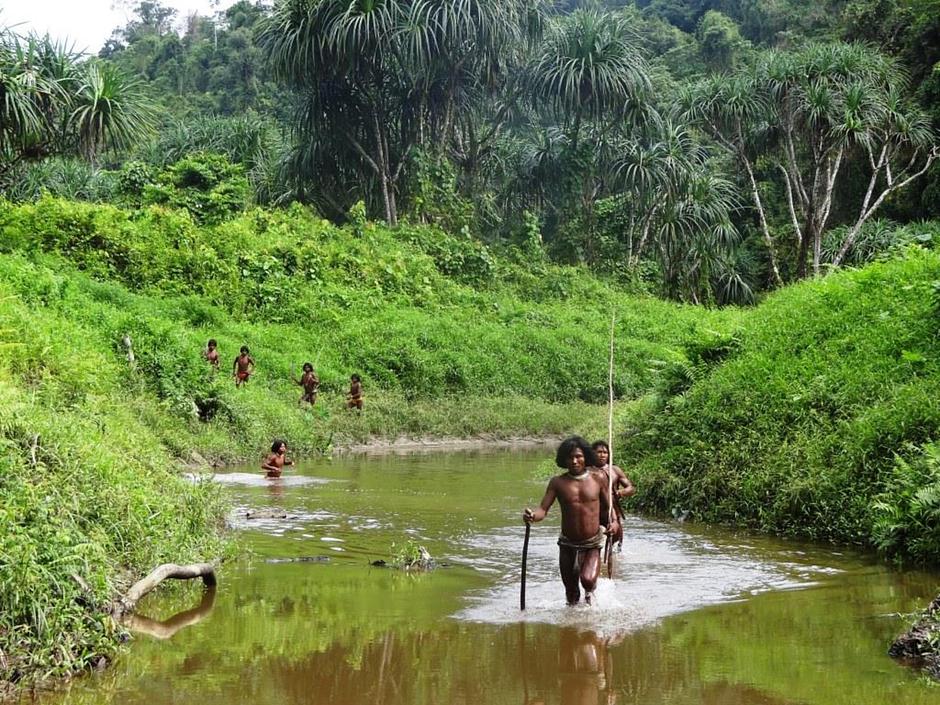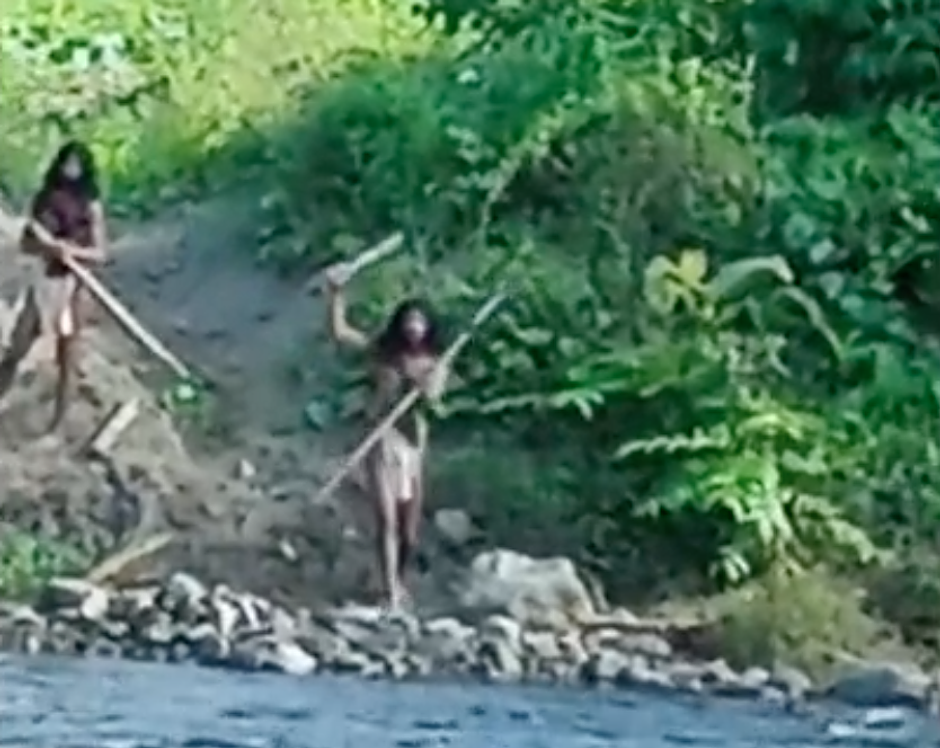FAQ: Why does Survival want to stop WWF creating Messok Dja?
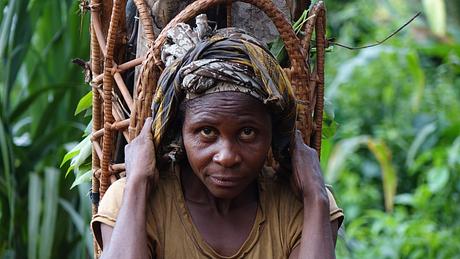
Survival explains the reasoning behind its campaign against the creation of Messok Dja protected area.
What evidence does Survival International have of human rights abuse?
We have been investigating the destruction of Congo Basin tribes in the name of conservation since the 1980s. In 2017, we published a 120-page report, “How Will We Survive: The Destruction of Congo Basin Tribes in the Name of Conservation.” Survival has investigated the impact of Messok Dja on Baka communities for several years. In December 2018 we published letters from Baka testifying to human rights abuses at the hands of WWF-funded ecoguards. Survival works in partnership with Baka contacts and local Congolese NGOs campaigning against the violation of tribal peoples’ rights in the name of conservation. These civil society organizations wrote a joint statement in which they condemned the abuse that happens in Messok Dja. Rainforest Foundation UK has also compiled evidence of widespread abuse, publishing two reports: Protected areas in the Congo Basin: Failing both people and biodiversity and The Human Impact of Conservation in Republic of Congo
Why are the Baka being persecuted? They must be doing something wrong.
Like you, Survival struggles to understand how WWF can justify its treatment of the Baka. Tribal peoples are the best conservationists and guardians of the natural world. Evidence proves they manage their environment and its wildlife better than anyone else. Though they have lived in the forests of Messok Dja since time immemorial, WWF describe the forests here as “pristine” and “intact.” This is not a coincidence! The Baka are a hunter-gatherer tribe who have a unique understanding of sustainable living, which is very much in keeping with WWF’s conservation goals. If biodiversity is abundant in these forests, it is thanks to the Baka’s vast knowledge of conservation. The Baka were expert conservationists long before the word “conservation” was dreamed up.
Why is Survival picking a fight with WWF? WWF has an Indigenous peoples’ policy.
Under WWF’s watch, gross human rights violations are being committed against tribal people WWF’s conservation projects bring about the eviction of tribal people from their land against their will, destroy their way of life and threaten their very existence. When the organization creates a new protected area on the ancestral land of tribal peoples, it does not secure their consent. All the while, WWF-funded park rangers persecute tribal people, subjecting them to physical violence. WWF’s projects are irreparably destroying the lives of tribal peoples and the conservation giant must be called to task for its actions. We don’t deny that WWF’s Indigenous peoples’ document makes great reading, but the problem is that it appears to carry no weight with WWF itself: The organization continues to show a blatant disregard for its own policy! The fact that it has compiled a convincing policy must not grant it immunity. Until Survival is satisfied that WWF acts in accordance with its own policy, and national and international law, rather than just claiming that it does, we will keep campaigning on this issue.
Surely WWF and Survival can work together on this, rather than against each other?
This is not a fight between two charities. This is about Survival International holding the conservation industry, including the big conservation organizations, accountable for gross human rights violations against tribal peoples around the world. We first approached WWF about the impact of its work on the Baka in 1991, and have met its staff several times since. We raised the issue again in 2014, at which point WWF often ignored our letters. When we did receive replies, they were from its PR representative. (It’s difficult not to infer from this that its primary concern about our reports of Baka abuse was to guard its reputation, rather than put an end to serious human rights abuses.) In 2016, Survival successfully lodged a complaint against WWF for breaching the Organization for Economic Co-operation and Development’s (OECD) guidelines for multinational corporations. The relevant authority agreed that on the basis of Survival’s evidence, there were sufficient grounds to investigate WWF for breach of responsible business conduct. It was the first time a non-profit organization had ever been scrutinized in this way. Over the course of our ensuing negotiations with WWF, it became clear that the organization had no intention of abiding by its own Indigenous policy, which it described as “aspirational." WWF refused to agree to respect the Baka’s right to consent for conservation projects on their land. For the inside view on what happened during the negotiations, and why they broke down, you can read Survival director Stephen Corry’s exposé. After multiple attempts to enter into a dialogue with WWF, we make no apologies for our criticism of its conduct.
Is Survival now anti-conservation?
Survival International is not against conservation. On the contrary, our campaigns target big conservation organizations such as WWF that continually fail to obtain the consent of Indigenous peoples for conservation projects on their land. We are yet to come across a single example of such an organization having carried out this basic due diligence. Not only is this a flagrant breach of international law, it’s also counterproductive to WWF’s own aims. Clearly, a system in which Indigenous peoples – the best guardians of the natural world – are evicted from their ancestral lands, is destined to fail. We’re championing a new approach to conservation that puts tribal peoples at its heart. It’s best for tribes, for nature, and for all humanity.
Survival must have an agenda?
Our only agenda is to defend the rights of tribal peoples. We are more than aware that many of Survival’s supporters are keen conservationists and may themselves be supporters of WWF. We accept that this campaign risks losing their support. However, if we are serious about campaigning for the rights of tribal peoples, we must set aside concerns about how popular we are and take on the battles that tribal people want us to fight. It is for this reason that unlike WWF, Survival International accepts no corporate or government money: we answer to no-one except to tribal people.
But surely the wildlife must be protected. Collateral damage is unfortunate but necessary.
Of course wildlife should be protected; we at Survival are not anti-animal! Survival’s campaign does not seek to jeopardize effective conservation, but to further it. Tribal people are excellent conservationists and excluding them from conservation is nonsensical. If you don’t take our word for it, WWF’s own policy says: “Most of the remaining significant areas of high natural value on earth are inhabited by Indigenous peoples. This testifies to the efficacy of Indigenous resource management systems. Indigenous peoples, their representative institutions and conservation organizations should be natural allies in the struggle to conserve both a healthy natural world and healthy human societies.” An increasing body of evidence shows that the easiest way to protect our planet is to respect the rights of tribal peoples and to trust in their proven ability to live sustainably on those lands. This means that anyone who says they are serious about conservation must also be serious about Indigenous rights. For more information on how respecting Baka rights is fundamental to effective conservation, visit our webpage .
Is there not a compromise solution? Couldn’t you just ask WWF to make sure it gets the Baka’s consent?
At present, Baka communities associate WWF with persecution and violence and therefore even if WWF did claim to have obtained the Baka’s consent, its claims would be void. The Baka must feel they can oppose the park freely if they wish to do so, without fear of reprisals should they oppose it. Until that point, any supposed consent obtained is meaningless.
What can I do to help?
A lot! We need your help to keep up the international pressure and we want as many people as possible to join our fight! We’ve got a ton of suggestions for getting involved here. Taking on hugely popular organizations such as WWF will be difficult. The public resoundingly trusts WWF: WWF Netherlands for example, one of the key funders of Messok Dja, receives nearly €33 million a year, or rather €63 a minute, from individual donors alone (WWF Netherlands 2017-2018 financial report). We need your help to make sure that those who are fiercely loyal to WWF will listen to our message and pressure their beloved organization to respect human rights.
Why does WWF want to create the Messok Dja National Park? What’s so special about the area?
The creation of national parks is at the heart of WWF’s plan to “protect” the planet. By 2020 a world-wide target has been set: 20% of the earth’s surface should be “protected.” This part of Congo has been declared a “priority landscape” for great ape conservation and deemed “Africa’s last elephant stronghold.” It is consequently of particular interest to conservation organizations. Survival International does not question the importance of conserving the world’s flora and fauna. Indeed, it is in the best interests of the tribes that we work with that our planet be protected against natural resource exploitation and human degradation. However, conservation organizations can and must respect the rights of tribal peoples. Survival backs the increasing body of evidence which shows that without the support of local people, conservation is doomed to fail. For the protection of tribes and nature conservation must respect the rights of tribal peoples.
Survival has been campaigning to stop abuse of Congo Basin tribes for years. Now we need your help. Together, we can change this damaging and colonial model of conservation. Please, donate today →


